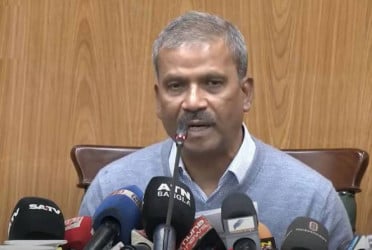As inflation continues to push up the cost of everyday essentials, managing regular expenses can feel daunting, making it hard to save for the future. However, building a financial safety net has never been more important. In 2025, saving money requires a smarter strategy—optimizing expenses, increasing income, and improving financial efficiency. Explore practical strategies to protect your finances and succeed despite economic pressures.
Smart money strategies for 2025
Here are some practical steps to help you save more in the coming year.
Set attainable financial goals
Make sure your financial resolutions don't fade away after the initial months of the new year. Setting smart goals can keep your financial resolutions fresh, strong, and versatile throughout the year.
Defining short-term savings targets can help you to build an emergency fund. On the other hand, long-term savings targets can energize you to run the race for fulfilling your big dreams like buying an apartment, studying abroad, or making a retirement fund.
Instead of burdening yourself with strict frugal behavior, it would be wise to set specific, measurable, achievable, relevant, and time-bound financial objectives to save money.
Review expenditure
Generally, not all products or services you pay for are essential, some are less necessary, and few are luxury. Tracking your spending behaviour is an effective trick to set realistic saving targets. Don’t do calculations in your head. Write down the costs on paper.
Utilizing a smart financial app or personal finance spreadsheets, one can easily identify one’s spending patterns.
Control expenses
After reviewing your spending behaviour, you can easily understand where to retrench. For instance, saving money doesn’t mean you have to eat less and suffer from malnutrition; rather it means cut costs on dinners outside that can be replaced by homemade meals.
In the same way, you can be thrifty about your wardrobe. For example, caring for winter clothes can save your money from buying new shawls and sweaters every year.
Nowadays, people tend to spend on digital products every month. However, cancelling unnecessary subscriptions reduces your expenses. Services you don’t use regularly should also be considered for discontinuation to save money.
While shopping for groceries, try to shop for a month instead of a week, it can let you enjoy some discounts and cashback. Compare prices to find a nearby grocery shop, super shop, or market where you can find goods and products at reasonable prices. Growing vegetables on the rooftop or your balcony can also save you some money on groceries.
What’s more, don’t forget to negotiate for lower rates on products and services.
Make a budget
Without a fixed weekly or monthly budget, it is hard to control costs in diverse sectors like grocery, clothing, travel, etc. Those who have spouses, children, elderly family members, or dependents need to consider all kinds of expenses while preparing the budget.
While creating a budget for a month or week, you can implement the 50/30/20 rule which means allocate 50% for needs, 30% for wants, and 20% for savings and debt repayment.
Grow your earnings
Savings can be easier if you can boost your income. To increase earnings, service holders can look for additional income sources such as freelancing, tutoring, online business, etc.
Besides, you can learn new skills for better career opportunities or promotions. Nowadays diverse international platforms and reputed universities are offering free and paid online courses.
Furthermore, you can rent out unused assets, like a room or a car.
Automate savings
Even when setting clear financial objectives and budgets, you may forget to put money into your savings accounts for a number of reasons. To avoid this issue, you can opt for automatic transfer of funds to a high-yield savings account like DPS. Many reputed banks in Bangladesh offer such profitable DPS schemes that will automatically transfer a certain amount of money from your salary account to your DPS account each month.
Minimize loans & debts
Avoid taking on loans or debts unless necessary. The banks lure people to take credit cards and personal loans. Uncontrolled credit card spending can trap you in huge debts. To avoid this, you can follow your budget strictly and pay through cash.
While taking personal loans, look for banks with lower interest rates and flexible repayment options. Avoid taking a new loan besides repaying your previous loan. To avoid loans, it would be wise if you can build savings for rainy days.
Monitor and adjust regularly
With time, your necessities, earnings, and spending behavior will change. In some months, you may fail to control expenditures due to unforeseen situations. Therefore it is necessary to review your budget and financial goals monthly. Adjust strategies based on life changes or new priorities.
And, don’t forget to celebrate milestones to stay motivated.
Savings help you to be financially stable and independent. Not to mention, during hard times, like medical emergencies or unemployment periods, savings can give you financial protection and mental strength. However, saving money is a habit that requires determination and sacrifice. By implementing the above-mentioned strategies, you can significantly increase your savings in 2025 while building a stronger financial foundation.
Source: UNB
Bd-pratidin English/ Afia






































































